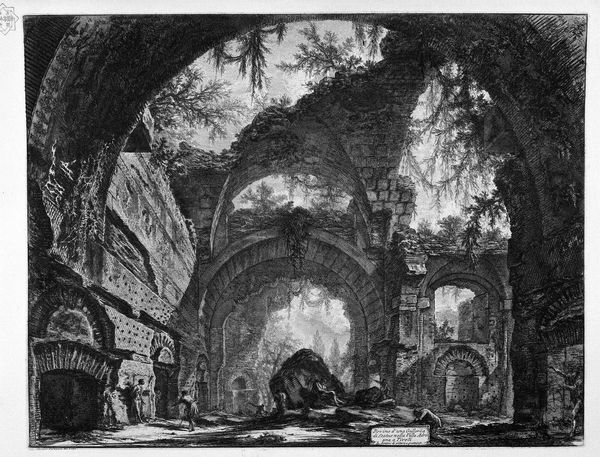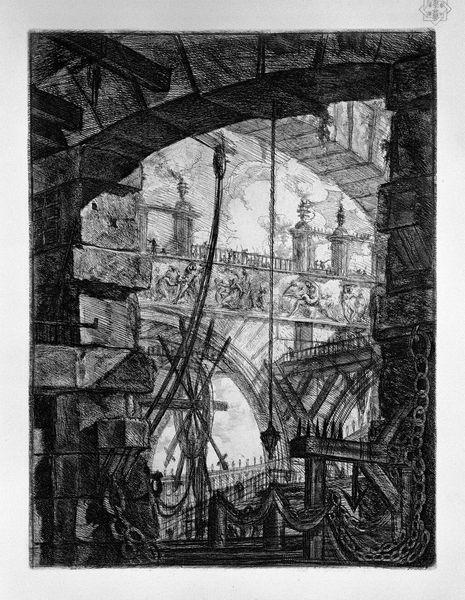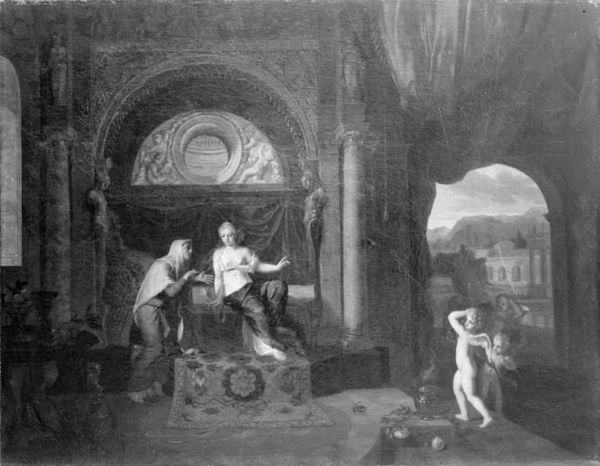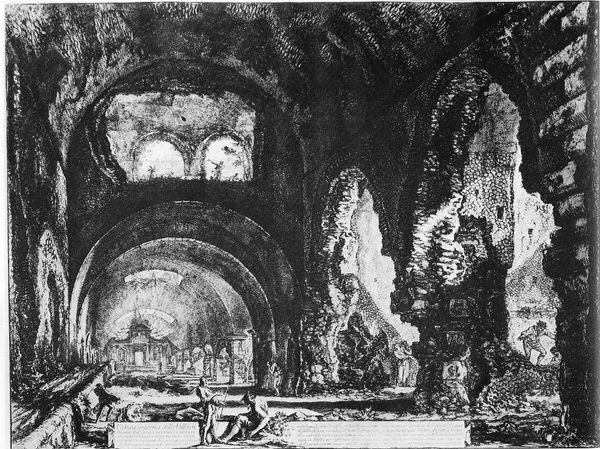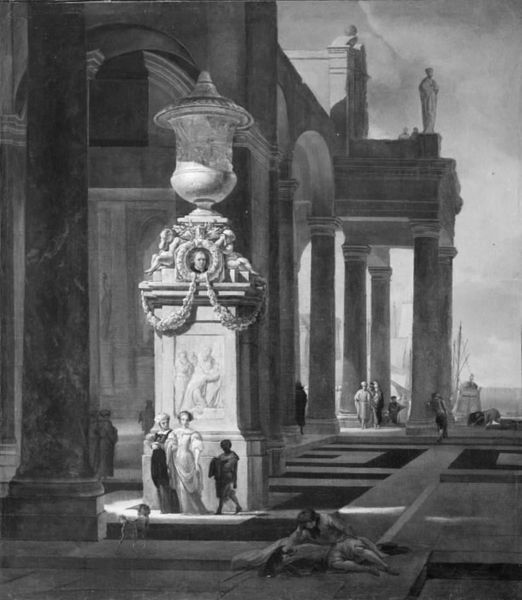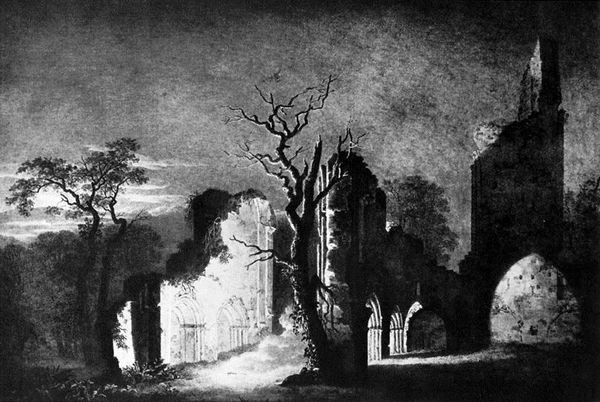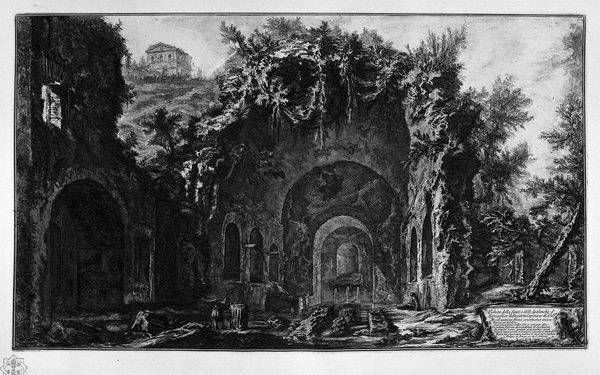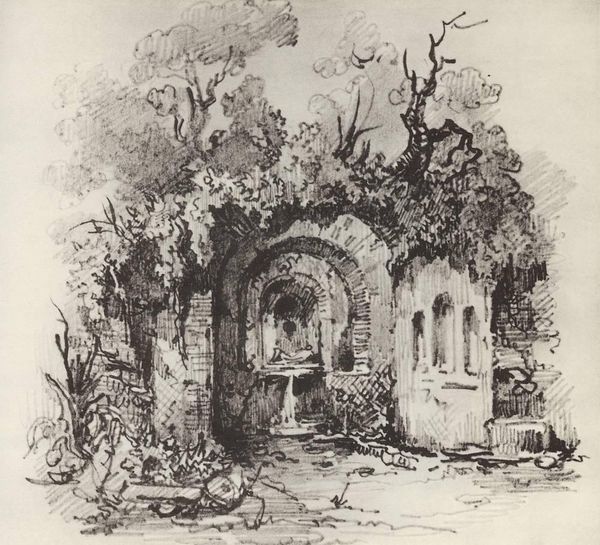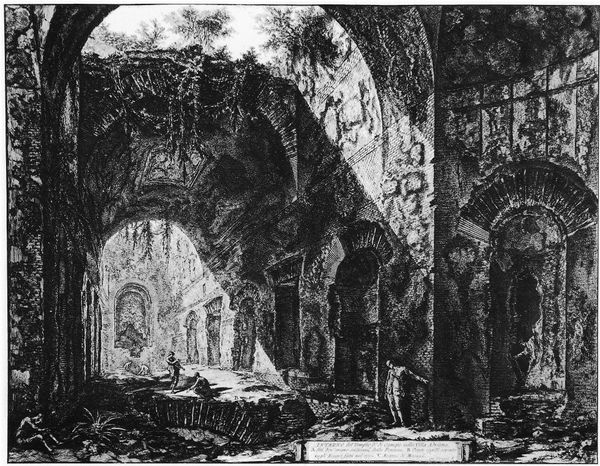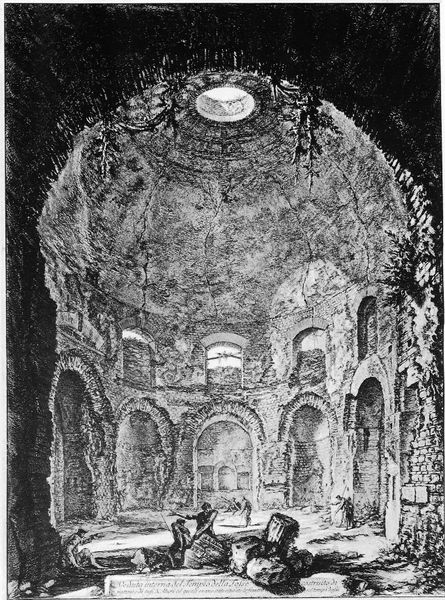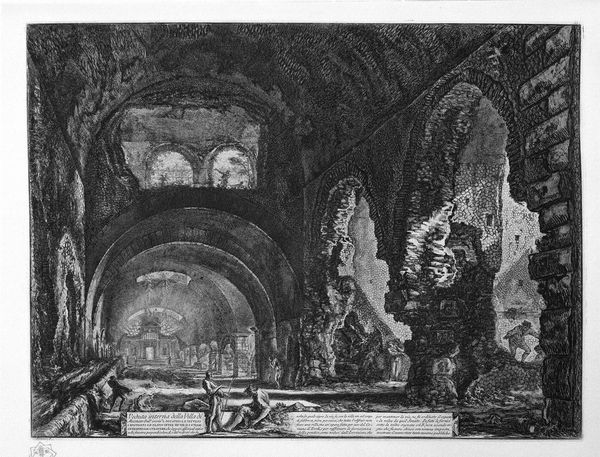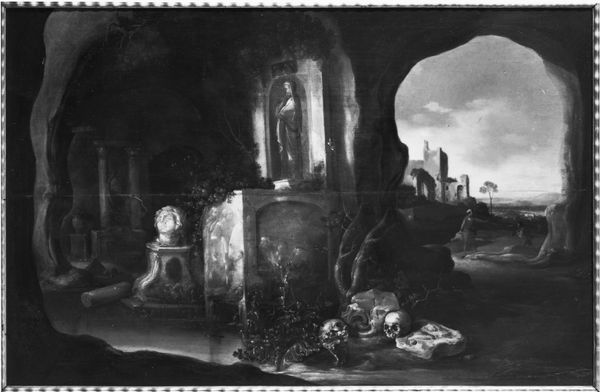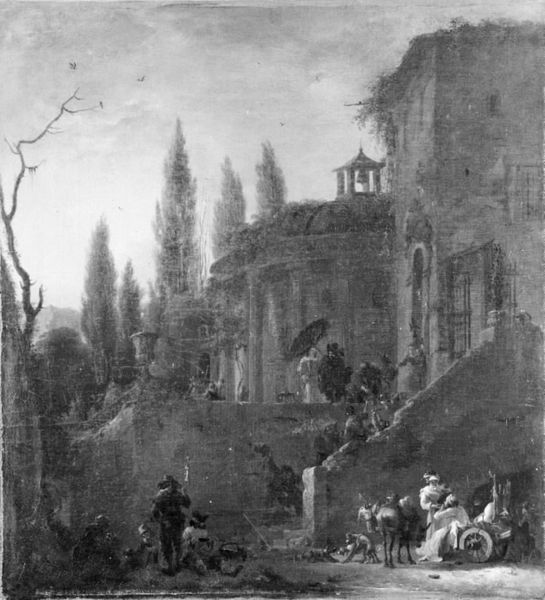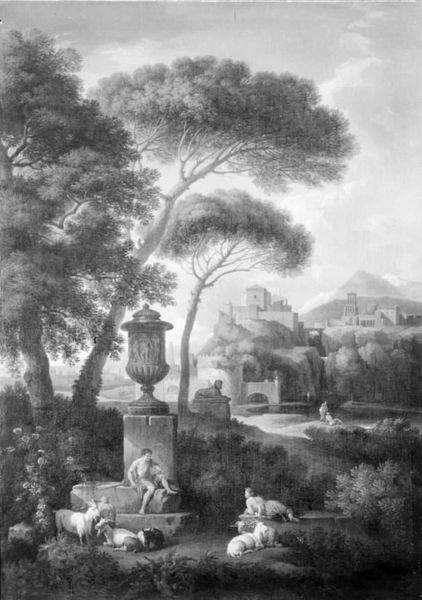
painting, wood
#
allegory
#
baroque
#
painting
#
sculpture
#
landscape
#
classicism
#
chiaroscuro
#
wood
#
genre-painting
#
history-painting
#
charcoal
Dimensions: 89.5 cm (height) x 121.5 cm (width) (Netto)
Editor: This is Charles Cornelisz de Hooch's "Grotto. Fantasy," painted sometime between 1627 and 1638. Looking at this dark landscape scene on wood, I'm immediately struck by how it balances classicism with an almost theatrical Baroque drama. What leaps out at you when you see this piece? Curator: The grotto, of course! But it's not just a grotto, is it? It's a stage! Look at the chiaroscuro – the way the light carves out the columns and the figures. Hooch isn't just showing us a place; he's inviting us into a world where antiquity, decay, and maybe even a bit of the uncanny coexist. It's as if he's saying, "Here's what's left when empires crumble, when the grand narratives fade.” Do you pick up on that sense of historical meditation? Editor: I see it. There’s this distinct layering, not just in space, but in time as well. The sculptures, ruins... they tell stories, but only fragments. Do you think the landscape outside, visible through the cave opening, plays a role in this sense of time? Curator: Absolutely. That vista hints at the world continuing, life going on outside of this…mausoleum. Think about it – the classical ideals Hooch invokes, were they really so pure? Were they sustainable? Or were they always haunted by the specter of their own inevitable decline? What's intriguing is the tension. It is quite theatrical, but also meditative. Like life and art locked in an eternal, gorgeous argument. Editor: That’s beautifully put! It gives the fantasy a weighty, thought-provoking element. This piece is so much more than just a pretty picture! Curator: Exactly, it makes you look deeper into your own perceptions. Thank you, I am glad we both made it to this revelation.
Comments
No comments
Be the first to comment and join the conversation on the ultimate creative platform.
